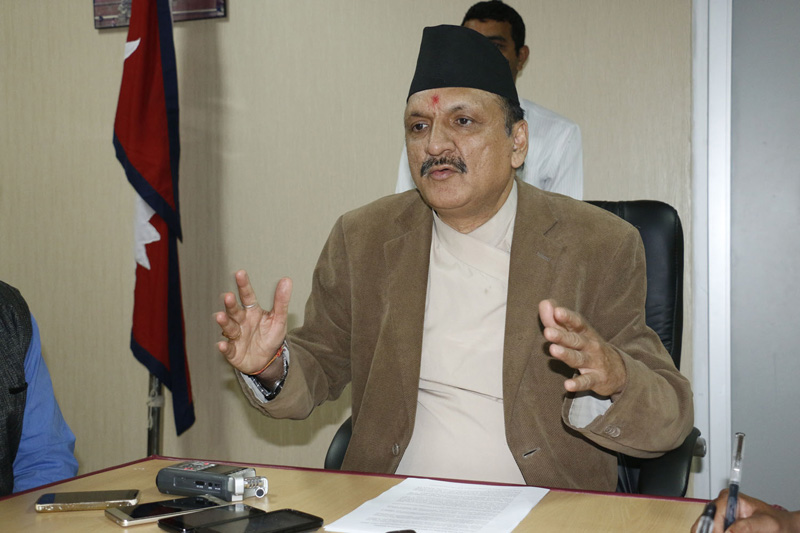‘Nepal, India to skip controversial issues’
Kathmandu, October 25
Nepal and India will likely skip controversial issues but comprehensively review all facets of bilateral ties during the fourth Joint Commission meeting, according to Minister for Foreign Affairs Prakash Sharan Mahat.
Talking to a select group of diplomatic correspondents at his office today, Mahat made it clear that the Nepali side won’t press the Indian side hard to resolve long unresolved issues of Susta and Kalapani, and hoped that the Indian side also wouldn’t press the Nepali side to seal the Extradition Treaty and Mutual Legal Assistance Agreement.
He expressed his belief that these issues would be resolved in due course of time. A joint Boundary Working Group is working to resolve border disputes in Kalapani and Susta — areas exclusively claimed by the Nepali side.
Likewise, despite an initial agreement at bureaucratic level in 2005, the Nepali and Indian sides are yet to strike a deal on some of the clauses of the extradition treaty.
The foreign minister-level Joint Commission meeting is being held in New Delhi from October 26 to 27. Foreign Secretary Shankar Das Bairagi left for New Delhi today, while Minister Mahat will leave tomorrow to participate in the meeting.
“We will press the Indian side to make tangible progress on projects that India has pledged to construct in Nepal,” Mahat said.
According to him, the Nepali side will press for early execution of projects in areas of power trade, irrigation, transmission line, integrated check posts etc.
The two sides are also likely to reach an understanding on renewing the Transit Treaty as it is. The Nepali side will also seek India’s consent to set up a consular office at Visakhapatnam to facilitate Nepal’s trade with third countries via the Indian port city.
India had agreed to provide the Visakhapatnam port for Nepal’s trade with third countries during former prime minister KP Sharma Oli’s visit to the southern neighbour in February.
On the power trade front, the Nepali side would seek a liberal trade regime in India so that Nepal could sell its electricity to whom it wants and at the price it sets.
Minister Mahat said the two sides are also likely to announce an oversight mechanism to monitor projects running under India’s economic cooperation in Nepal and do the needful for their timely completion. Both sides have already picked their representatives for the joint instrument.
The foreign secretary will lead the Nepali side, while the Indian ambassador in Kathmandu will lead the Indian side.
The progress made by Eminent Persons Group on Nepal-India relations would be discussed in the two-day meeting. The third joint commission meeting decided to set up EPG to review all existing Nepal-India treaties and agreements and contextualise them.






